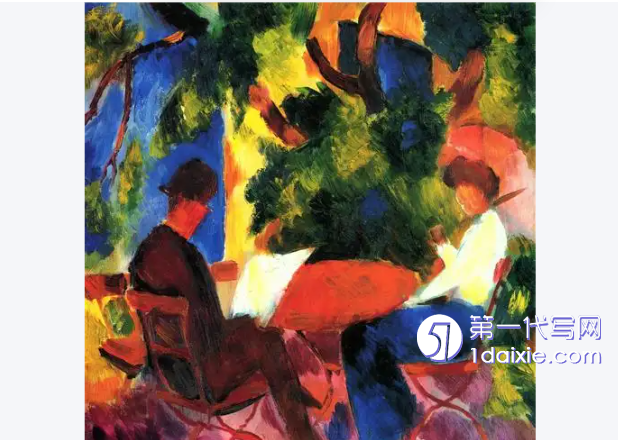本文是一篇英语毕业论文,本文以“阿比库三部曲”为研究对象,从个人成长、集体成长与国族成长三个维度展开分析,论证奥克瑞如何通过成长书写实现个体经验与民族寓言的双向对话,重构非洲主体性并回应全球化语境下的文化困境。
Chapter One Personal Growth:The Spiritual Odyssey of Abiku
1.1 Awakening of Self-Awareness:Duality of the Spirit-Child Identity
From ancient times to the present,human beings have been tirelessly questioning their own identity.“Who am I?”“What kind of person am I?”“What kind of person do I want to become?”These are all questions that every individual in modern society is bound to face.They not onlyimply the connection between the self and the world but also represent an individual’s deepinquiry into self-worth,and more importantly,they reflect a sense of belonging in the spiritualsense.Azaro’s identity as a spirit child carries the philosophical concept of the cycle of life anddeath in Yoruba culture.He constantly deconstructs the colonial logic that regulates theperception of his identity as he repeatedly passes between the spirit world and the real world.
In the trilogy,Azaro,as the subject of cognition and action,has an active sense ofself-exploration.“Self”is the subject that recognizes and acts.It usually consists of the“ego”and the“alter ego”.Postnatal education and social practice have a significant impact on theshaping of the self.In psychology,self-awareness can be divided into two levels:one is anindividual’s understanding of themselves;the other is an individual’s understanding of therelationship between themselves and the surrounding world(Cohen 19).The process of shapingAzaro’s inner self,from his initial breach of the spiritual contract,which led to the tearing of hisidentity,to his self-awakening through near-death experience and public struggle,to therealization and gradually clear self-positioning,is closely related to the environment he is in andthe characters he associates with.This section mainly forms a logically progressive chain fromthree aspects—from the reconfiguration of mythic archetypes,to the dilemma of self-alienation,culminating in the awakening of subjectivity through violent experiences—it mirrors thestruggles and growth of the postcolonial subject with double consciousness,caught betweentradition and modernity,spirituality and reality.

1.2 Cognitive Reconstruction:Transcending Three Fluid Spaces
All human production and life activities take place in space,and space is also anindispensable component of novels.Bakhtin pointed out:“In the artistic chronotope of literature,spatial and temporal markers are fused into a recognized concrete whole”(Bakhtin 269).In thegrowth of young people,under the cover of the temporal dimension,the spatial dimension isoften overlooked.However,it is undeniable that space has the function of storing memories;itcan record the memories that have been forgotten as time passes.Space,with its stable form,locks in every bit of our growth.Roman Ingarden believes that literary works actually have twodimensions:“a spatial dimension where all textual strata coexist synchronically,and a temporaldimension unfolding diachronically through narrative sequences”(Long,2008:56).Due to theinseparable coexistence of time and space,in magical realism novels,space not only becomes anindispensable place for the story to occur and be narrated but also intentionally uses space torepresent time,arrange the structure of the novel,and drive the development of the narrative.
Ben Okri’s trilogy highlights the development of the spirit child Azaro through asophisticated and multi-layered narrative spatial structure.These spaces function not only asvehicles for the narrative but also as critical dimensions in portraying the complexity of theprotagonist’s growth.His growth deviates from the conventional linear trajectory of“innocence-experience”and is instead realized through the interplay of living space,naturalspace,and illusory space,thereby reflecting the fluidity and polyphony of individual identitywithin the postcolonial context.The triadic spaces formed by the slum,the forest maze,and theghost world construct a Möbius strip-like topology in the narrative,emphasizing his ongoingstruggle and transcendence between social reality and the spiritual realm.
Chapter Two Collective Growth:Resistance of the UnderclassCivilians
2.1 Grow in Silence:Arousal of Consciousness in the Female Group
Ben Okri’s Abiku Trilogy presents a vivid tableau of collective female growth,exploringhow women have reinvented their roles in the public sphere.It shows how women,throughcontinuous struggle,awakening,and reinvention,achieve a shift from the margins to the center.“The value connotation embodied in the growth of women points to the discovery,search andcompletion of women's subjectivity,that is,women should achieve dual independence ineconomy and spirit”(Gao 55).Okri’s narrative not only reveals the constrained status of womenwithin traditional social structures but also profoundly subverts gender roles through characterdevelopment and plot construction,thereby endowing women with new social identities andhistorical significance.Women are not only the maintainers of the family,but can also beparticipants in economy,politics and culture.Mum’s role in political resistance is reinforced asher leadership gradually unfolds and leads other women to challenge the established order.
At the same time,Okri is critical of the fact that some women fall into the same system of oppression when they gain power,suggesting that real change is not just the transposition ofgendered power,but the reshaping of the entire social structure.Through the different paths ofthe women’s collectives led by Mum and Madame Koto,Okri shows the multiple possibilities ofwomen’s collective growth,allowing them to gain subjectivity in a new historical narrative.Thiskind of growth narrative not only rewrites the female image in African literature,but alsoparticipates in the dual deconstruction of colonial history and gender oppression in literary form.
2.2 Growth in Suffering:Trauma and Healing among GhettoCommunity
Okri’s creations not only depict the reality of material poverty,environmental degradationand political violence,but also explore how marginalized groups grow and reconstruct theirsubjectivity in the face of structural violence through the reconfiguration of family,communityand collective memory,and nurture the seeds of democracy.The following analysis will dissectthe survival strategies and ideological transformation of slum dwellers from three aspects,arguesthat Okri’s texts are not only a mirror of social reality,but also an ideological experiment on thepossibility of liberation.Its significance lies in revealing that in the interweaving of systemicviolence and historical amnesia,the collective growth of the lower classes is not a linear progress,but a continuous redrawing of the boundaries of democracy and the map of hope in the dialecticof trauma and awakening.
2.2.1 Suffering and Death:Realistic Presentation of the Living Conditions ofSlum Dwellers
In Ben Okri’s Trilogy,the depiction of Lagos ghettos serves as a microcosm of the systemicsocio-economic and political crises plaguing postcolonial Nigeria.Through the lens of Azaro,aspirit-child navigating both the physical and spiritual realms,Okri constructs a harrowing narrative that exposes the multifaceted survival struggles of the urban poor.The Abiku Trilogy,as Harry Garuba observes,transcends magical realism to present“a grim socio-economic tale ofpoverty and politics of a neo-colonial state”(279).Okri examines the existential adversitiesfaced by ghetto dwellers,emphasizing the interplay of material deprivation,environmental decay,political violence,and colonial legacies that perpetuate their suffering.
Chapter Three National Growth:From Colonial Shadows to Future Remodeling.......................65
3.1 An Abiku Nation:Growth Metaphor and National Reconstruction.................................65
3.1.1 Fractured Nigeria:Colonial Scars and the Predicament of State Building............66
3.1.2 Samsara Allegory:Abiku Isomorphic with the Fate of Nation..............................68
Conclusion..................................88
Chapter Three National Growth:From Colonial Shadows to FutureRemodeling
3.1 An Abiku Nation:Growth Metaphor and National Reconstruction
Hirsch argues that“the novel of formation maintains a peculiar balance between the socialand the personal and explores their interaction”(Hirsch 299).This explains the efficacy ofnational allegories in growth novels.From the allegorical perspective,each young protagonist represents their nation because they are all born into chaotic environments—subject to thepolitical conditions of their families and the colonial or post-colonial political circumstances theyare embedded in.They resemble epic miracle children or heroes,representing a nation at aspecific moment in its history.Okri’s novel is no different,especially in terms of its growthnarrative.The growth process of the protagonists in the Abiku Trilogy is based on thepost-colonial history of Nigeria.Moreover,the fate of the country,due to the allegorical natureof the novel,shows a structural similarity with the personal growth.This feature is also anothercharacteristic of the Bildungsroman as a genre that Bakhtin and others have repeatedlyemphasized:“The growth of a person is realized in real history,closely combined with theinevitability,completeness,its future,and its profound spatio-temporal nature of historical time”(Bakhtin 232).This connection between the individual,history,and social reality is clearlypresented in the trilogy.

Conclusion
Ben Okri’s Abiku Trilogy constructs a poetic bridge between individual lived experienceand the collective destiny of a nation amid the ruins of postcolonial Nigeria.Through thecoming-of-age narrative of Azaro,the spirit-child,Okri not only reimagines Yoruba mythologyfor the contemporary era but weaves a literary tapestry of colonial scars,post-independenceturmoil,and visions of renewal.In this multidimensional epic of growth,the awakening ofindividual consciousness,the resistance of marginalized communities,and the rebirth of culturalidentity intertwine,collectively addressing the core question of African subjectivity in thepostcolonial context.Okri’s work responds to Chinua Achebe’s call for“African stories”whiledeepening Wole Soyinka’s belief that“myth is reality”—proving through narrativeexperimentation that literature can both diagnose societal ills and offer symbolic remedies forcultural trauma.
At the heart of the trilogy lies the metamorphosis of the abiku myth into a prism fordissecting postcolonial identity crises.Firstly,as a liminal being traversing the boundaries of lifeand death,Azaro’s existence inherently subverts the linear logic of Western modernity.His“fivebirths”mirror Nigeria’s five regime changes post-independence,while his refusal to return to thespirit world symbolizes the nation’s resistance to the singular path of colonial modernity.Secondly,Okri uses Azaro’s perspective to expose the duality of violence in personal growth:domestic violence replicates structures of social oppression,political violence lays bare thealienation of power mechanisms,and epistemic violence reveals the erosion of indigenousknowledge systems under colonial education.When Azaro confronts his fragmented reflection inshattered mirrors,this visceral portrayal of identity fracture not only echoes Frantz Fanon’s“Black Skin,White Masks”but dissolves the confrontational rhetoric common in postcolonialtheory through the soft power of mythic symbolism.
reference(omitted)
